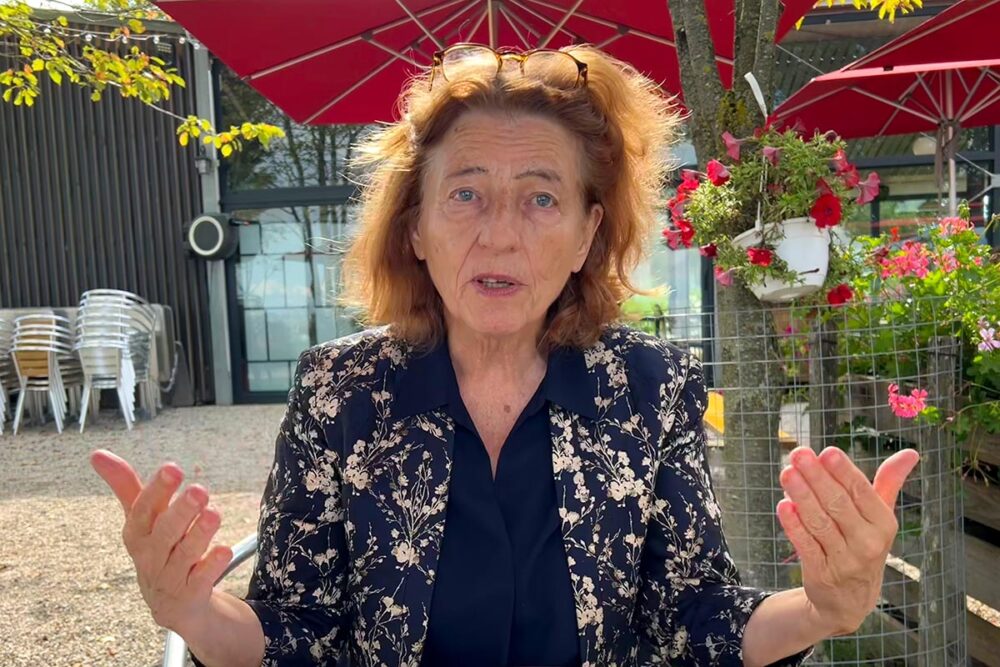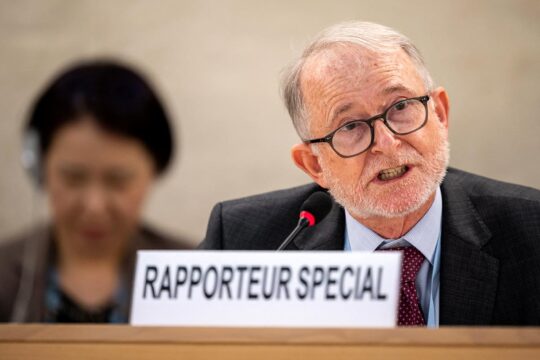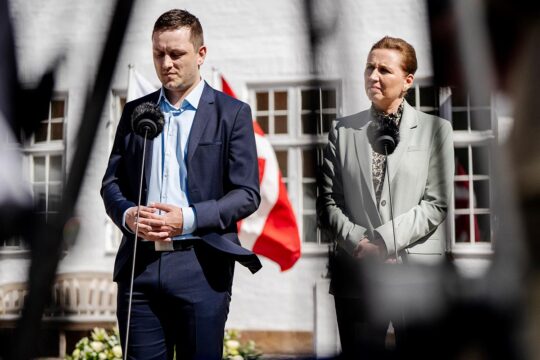JUSTICE INFO: It is 20 years since all Heads of State and Government adopted a commitment on the Responsibility to Protect. What difference, if any, do you think this has made?
MO BLEEKER: First that it exists, and that it reflects a commitment made by States, marking I think, a very important normative shift: to say that sovereignty entails a responsibility of the State to protect its population and prevent atrocity crimes. These crimes include genocide, war crimes, ethnic cleansing, and crimes against humanity. The Responsibility to Protect principle indicates a red line where these crimes shall no more happen and it is the responsibility of States to prevent them, stop them if they are happening and protect the population who may be affected.
Each Member State has the primary responsibility to protect its own populations, and the international community has the duty to assist and advance such protection. When States are unwilling or unable to protect their populations, the UN Security Council has the responsibility to respond and ensure protection. But lack of implementation and lack of political will is what we observe for this and many other commitments that the international community has made on human rights and international humanitarian law, climate change, etc.
Look at the Occupied Palestinian Territory, including Gaza, look at Ukraine, Sudan, South Sudan, Myanmar and other regions where atrocity crimes are being committed or alleged.
Then there was the UN Resolution 1973 in 2011 which authorized international intervention in Libya under the framework of R2P. However, that intervention led to a regime change which was not at all foreseen or authorized by the Resolution. From the onset that created a huge deficit of credibility and legitimacy for the Responsibility to Protect, and gave the opportunity to some member States to claim it was an interventionist agenda from the Global North. But this claim is based on a false premise. Far from undermining sovereignty, R2P affirms the necessity of a responsible sovereignty – one that is accountable for the protection of its own people.
So it’s not working?
I have always said that the big problem in the implementation of genocide prevention or the Responsibility to Protect is the lack of understanding of what prevention truly means. The problem is that there is a culture of reacting only when the fire is already burning. But this is precisely a moment when polarization is at its highest, when parties are fully involved in war and violence. When the house is actively burning, thinking that the international community can easily take a decision to stop this respectfully, nicely, and in a friendly manner, forget about it. That’s not realistic. It’s do-able, but it requires a lot of mediation skills, capacity to convince, different kinds of leverage, and foremost political will. But if we had a culture and politics of permanent prevention much earlier, that would change everything.
Many intellectuals and academics around the world are saying that the situation in the Middle East now is a typical case for the Responsibility to Protect. I agree, but I also regret it. It’s a typical case for R2P, but since long past. The house is already burning and so many people have already been killed.
What is truly regrettable is that all the early warning signals, the proposals to exert every possible pressure for parties to stop the conflict have not been acted on – and I am not only talking about Gaza and the Middle East but other situations as well. Since the creation of this joint office [on Genocide Prevention and the Responsibility to Protect] there has been a lot of work on awareness-raising and mainstreaming within the UN and Member States, and we now understand better how atrocity crimes dynamics begin and evolve. The problem is that very often when we raise the alert very early about the possibility of atrocity crimes, people do not take it seriously. And when atrocity crimes are already underway, with many victims, Member States begin to move, but then the polarization is already so great that achieving consensus becomes very difficult. There is something beautiful in this idea of consensus in the UN General Assembly. It would be beautiful if there were also a consensus in the UN Security Council, particularly when there are alleged risks of atrocity crimes or when they are being committed. But that is currently not the case.
Do you fear irrelevance or impotence in your position?
Even when it’s very difficult, you have to go on. Take Gaza, for example. Since 2023 you have had an incredible mobilization by Member States to file resolutions to stop the violence, recalling all the elements contained in the Responsibility to Protect. To the point that when the Security Council was blocked by a veto, some Member States successfully invoked the “Uniting for Peace” mechanism to convene special sessions of the General Assembly. Let’s not fool ourselves: we are living in a very critical moment, in which P5 members [the five permanent members of the UN Security Council: US, Russia, China, France, UK] may veto urgent initiatives to save lives. But it doesn’t make all the work being done to save those lives irrelevant. On the contrary. We must become even more creative in how we overcome the veto in cases of atrocity crimes. What are the avenues that we could use to ensure we stop what’s happening? And I am not only speaking about Gaza but also other contexts.
There are multiple avenues. Among Member States who are very active in the Responsibility to Protect, it’s a constant discussion about what didn’t work and what can be done now. And this discussion is not limited to Member States, it also involves civil society everywhere. I am not speaking only about the demonstrations, which reflect a beautiful awareness that such atrocities should not happen, and that their occurrence marks a collapse of our shared humanity, but also initiatives like the flotilla, collaborative movements of Israeli and Palestinian women, and the mobilizations of artists, religious leaders, and many others. In Sudan, South Sudan, and in relation with these contexts, there is a strong mobilization of civil society. People are actively discussing concrete strategies to prevent and protect and to mobilize Member States to stop these dynamics.
Why do you think we have not seen the obligation to intervene in action in Gaza or Sudan?
I think it is an accumulation of factors, one of which lies in the geopolitical divides. What we are also seeing is a very negative dynamic, one that pushes more and more towards violations of international humanitarian law, human rights abuses, and commission of atrocity crimes with total impunity. It took decades of effort, of people, pushing into the desert, to develop the current architecture. What we are facing now is a moment where everything we have built over those decades is being called into question. And every time atrocities are committed and there is impunity, we lose ground. It doesn’t undermine R2P or the Universal Declaration of Human Rights per se; it undermines the whole system whereby Member States are expected to abide by their commitments.
Who are the spoilers?
I think we should not forget that it’s not only the P5 involved in many of these situations but also other actors – neighbours, regional actors, private businesses. Of course, some spoilers are more active than others, but it’s the duty of every State to uphold its responsibility. So all those supporting armed actors in Sudan, for example, could be called to account and told: what you are doing is unlawful.
I come back to what I was telling you about prevention: It’s midnight in the century, don’t turn off the lights that are still on. One of those lights is our willingness and capacity to protect, to analyse and to take early decisions which align with what we declared when we said we have a United Nations.
There have been successive Western sanctions against Russia for its war in Ukraine, yet little is being done to stop what is happening in Gaza or Sudan. Do you think there is a problem of double standards?
Yes, there are double standards, and that’s a major problem. But I would like to clarify something: the United Nations is a huge machinery created by States. States take decisions in the General Assembly on policies, budgets, and so on, and States are often more sensitive to the suffering in one situation than another – or their national interest you may say. I would say that’s a very normal problem. But at the current scale, and given the gravity of the consequences, it is unbearable.
How would you qualify the situation in Gaza right now?
Reports by two UN Special Rapporteurs and the Independent International Commission of Inquiry on the Occupied Palestinian Territory, including East Jerusalem, and Israel have concluded that genocide is being committed, as detailed in the Commission’s latest report. For war crimes, there are enough reports that include them. For ethnic cleansing, we have had announcements of this, likewise crimes against humanity. From the perspective of Responsibility to Protect, I say that all the risk factors are already there. As much as the labelling of a crime is important, I protest a bit on why genocide would be more important than war crimes, ethnic cleansing and crimes against humanity. Each of these crimes have basically passed the threshold of humanity, and they all should be stopped immediately, whatever the intent is.
I understand the need to call things by their name, but from the very moment risks for commission of atrocity crimes are identified, one should act immediately, otherwise it will already be too late. What I want to underline is that we shall not wait until these atrocity crimes are “elevated” to genocide to stop them. It’s already enough. You don’t have to wait until it’s a genocide to react.
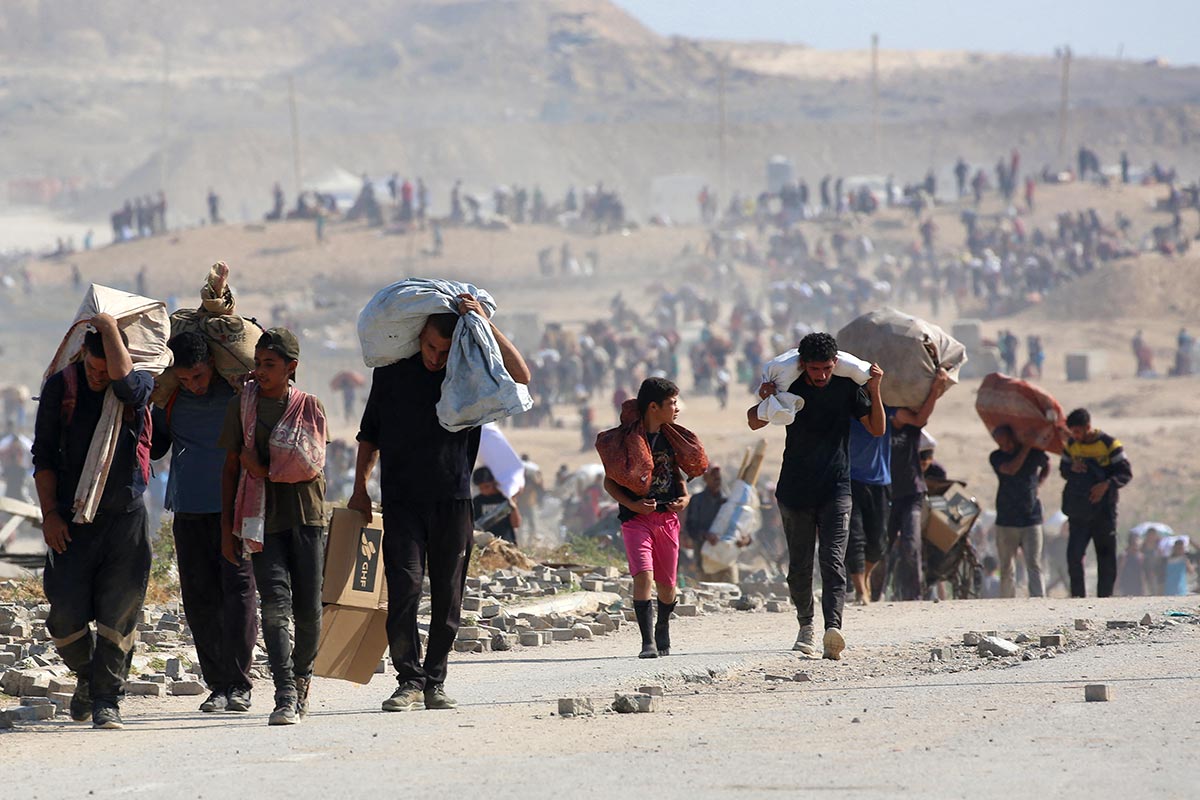
What about Sudan?
The specialists who are there and the UN Office for the Coordination of Humanitarian Affairs are speaking every day about massive gender-based violence, massive displacement. The Independent International Fact-Finding Mission for Sudan, established by the UN Human Rights Council in 2023, has similarly documented atrocity crimes perpetrated by both parties to the conflict. There are war crimes, crimes against humanity. There is a community specialized on Sudan, which concludes that there is a genocide. I am not a jurist, I’m an anthropologist, but from my point of view, this kind of violence, which is geared towards certain communities, the “other” community, is already to be stopped. It’s part of all the elements that we must prevent and stop if we want to prevent genocide.
Are there other situations that you are particularly worried about?
Yes. I am particularly worried about Myanmar. You have this ongoing persecution of Rohingya and other minorities, and ongoing fighting including by the Arakan army that has also had terrible consequences on civilians. There are also other contexts, such as Yemen. In Yemen there is targeting of civilians and a humanitarian crisis, with little or no accountability. It’s a long, protracted conflict, and the regional situation is making this much more complicated. And of course, Ukraine. We also have ongoing instability and ethnic violence in several regions in Ethiopia. Worrisome developments are taking place in the Great Lakes region, in the Democratic Republic of Congo, including the presence of non-state actors affiliated with Rwanda. Burundi is paying a high toll from that. The Sahel belt has become a territory largely dominated by international crime, not only Islamist groups, but also criminal networks involved in arms trafficking, human smuggling, and you name it.
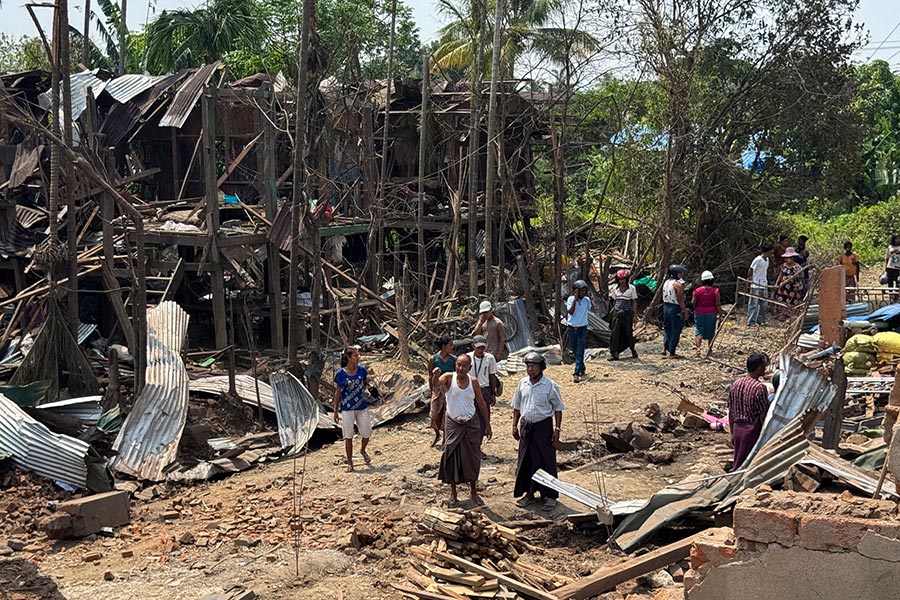
In other contexts like Colombia, where a peace agreement was signed in 2016, new forms of violence are emerging while the peace agreement is not completely implemented. The good news there is that the Special Jurisdiction for Peace, which is a central piece of transitional justice, issued its first ruling against seven former members of the Revolutionary Armed Forces of Colombia (FARC) for kidnappings committed during the armed conflict, and a second ruling against 12 former soldiers accused of over 130 extrajudicial executions.
You have worked in and on a number of situations across the world, especially as a transitional justice expert for the Swiss government. How do you see transitional justice in today’s world order?
I think the beauty of transitional justice is its immediacy. It can already be active without waiting for formal court rulings. The day courts may prove the nature of the crime committed – genocide, or other atrocity crimes, be it in Gaza, Sudan, Myanmar – will be in years. But transitional justice can already work with and from the victim’s perspective. Because it’s not only about what was done to whom by whom, but also about the ongoing consequences on the victims and the society at large. Survivors shall not need to wait 15 years for a judge to rule or issue a verdict, which may be too late, and contested, as too often the trials turn into a formal confrontation between perpetrators and victims. I think the truth as being experienced by the victims is as important as the legal evidence that you can establish against a perpetrator.
The ongoing process on missing persons in Syria right now, despite ongoing instability – which may last another ten years, maybe more, because you have to rebuild the whole of society – is extraordinary, and I think it is a good way to go. Justice will take its time, but meanwhile the family associations of the missing are leading the process to find their loved ones, pursue justice, share the facts and the impact of these crimes. This shall prepare the ground to prevent the recurrence of these crimes.
Note: This interview has been reviewed and amended by Mrs Mô Bleeker and her Office.
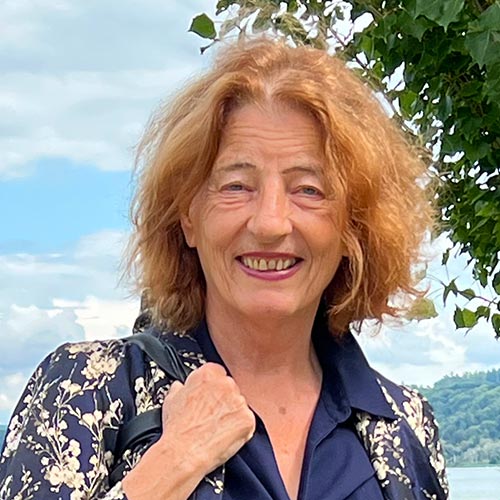
Mô Bleeker, a Swiss national, was appointed in March 2024 as the United Nations Secretary-General’s Special Adviser on the Responsibility to Protect. Prior to this role, she served as Special Envoy for Dealing with the Past and Prevention of Atrocities at the Swiss Federal Department of Foreign Affairs, where she has held various positions since 2003. Her previous assignments include serving as Special Envoy for Peace in Colombia, Chair of the Transitional Justice and Reconciliation Commission in the Philippines, and Chair of the prevention platform Global Action Against Mass Atrocity Crimes.


